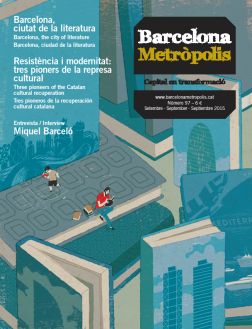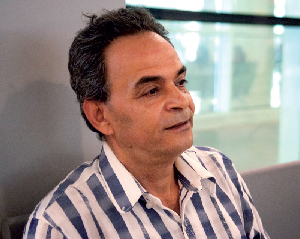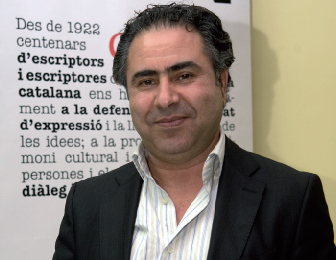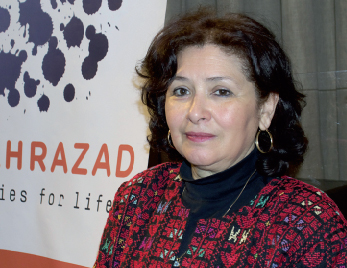Thanks to the experience accumulated with the International Parliament of Writers, in 2006 PEN Català helped create a network of cities to serve as refuges for writers persecuted in their own countries. This host programme, developed with the support of the Barcelona City Council and the Catalan Government, is an important element in the city’s bid to become a UNESCO City of Literature.
Barcelona has always been an open city that has welcomed people from all over the world, especially artists and writers. The city figures in literary works dating back to medieval times and, especially in the 20th and 21st centuries, can be documented through the eyes of the writers it has inspired. That is why, literarily speaking, there is no single Barcelona, but many Barcelonas. A city seen from different viewpoints and realities throughout history: from the Chinatown of Jean Genet, Josep Maria de Sagarra and Francisco Casavella; the Raval of Manuel Vázquez Montalbán, Terenci Moix, Eduardo Mendoza, Antoni Verdaguer and Mathias Énard; the Carmel of Juan Marsé and David Castillo; the Gràcia of Mercè Rodoreda; the Ribera neighbourhood of Rusiñol; the Eixample of Montserrat Roig; the Republican Barcelona of Orwell; the Barceloneta of Joan Salvat-Papasseit… the list goes on.
Beyond opening the city to a range of cultural manifestation, Barcelona has also welcomed those artists seeking refuge because of difficulties in their home country. The city has participated in cooperation programmes with countries in conflict for decades. It was one of the first cities to join the International Network of Cities of Asylum (founded in 1994 by the International Parliament of Writers and disbanded in June 2005), joining after the Catalan Regional Parliament adopted a resolution on 24 May 2001 declaring Catalonia a community of refuge. Barcelona has welcomed writers like Albanian Bashkim Shehu and Cuban Rolando Sánchez Mejías, who both decided to continue living in the city after the programme ended.
Barcelona has offered the Writer in Refuge programme since 2006 with the help of PEN Català, an affiliate of PEN International – an association of writers founded in London in 1921. Through the Writers in Prison Committee, PEN International acts as an expert in the case development and assessment of candidates who wish to be accepted in the programme. The association ensures the highest standards when determining the most urgent situations.
Writer in Refuge programme
PEN Català, founded in 1922, has been involved in the many activities of International PEN from the start, mainly defending freedom of expression and the free exchange of ideas, as well as the protection of the cultural and linguistic heritage of individuals and peoples.
Thanks to the experience accumulated with the International Parliament of Writers, in 2006 PEN Català helped create ICORN (International Cities of Refuge Network), an international network of refuge cities based in Stavanger, which coordinates the cities that have the status of a refuge city as well as the writers who must seek refuge outside of their countries, where their lives are at risk. The ICORN charter is based on Article 19 of the Universal Declaration of Human Rights, which refers to the right to freedom of expression, and has been developed based on the principles established in PEN International’s charter.
As a result, and with the backing of the Catalan Government and Barcelona City Council, Barcelona became the first city of refuge in the country with a Writer in Refuge Programme managed by PEN Català. The ten cities that first formed the network have now grown to fifty, with Girona joining Barcelona two years ago. And, on 4 February 2009, the Balearic Islands Regional Parliament approved a resolution declaring the Islands a refuge for persecuted writers, turning Palma into a city of refuge. Other Catalan cities have currently asked to join, always through PEN Català.
Programme characteristics and objectives
Candidates must be writers in the broad sense of the word, at risk as a direct result of their writing, prevented from freely expressing their ideas and in danger of death or already sentenced by the authorities of their country, provided their work does not incite violence.
The programme aims to raise awareness about the need to defend and protect freedom of expression, democratic values and international solidarity; provide an appropriate response to writers through refuge and a solution to practical issues thereof: housing, medical care and bureaucratic processes. The programme also ensures the integration of the writer and his/her family into Catalan society, helping them to learn the language and introducing them into the cultural environment of the host country. It offers refuge for one year, which can be extended to two. If the situation in the writer’s home country makes it impossible to return after this period, ICORN will assess whether the writer should continue living in the same city or if another city in the network might offer refuge.
To date, Barcelona has hosted the Berber poet, novelist and essayist Salem Zenia from 2007 to 2009; the Kabylia native was persecuted for defending Tamazight, his mother tongue, and democracy in Algeria. Since 2007 Salem Zenia has published two books of poems in Catalan and Tamazight: Sol cec [Blind Sun] (Accent Editorial, 2008) and Jo sóc l’estranger [I Am the Foreigner] (Lapislàtzuli, 2015) and the novel L’arrel de la boira [The Root of the Fog] (Lleonard Muntaner, 2014).
The city also hosted Tunisian journalist and activist Sihem Bensedrine from 2010 to 2011; Bensedrine was the first writer in the programme who was able to return to his country as a result of the Arab Spring.
The third writer was Palestinian poet Bassem an-Nabris (hosted from 2012 to 2014). During his stay in Barcelona he wrote a column about Barcelona and Catalonia, first in Elaph newspaper and then in The New Arab, both in Arabic. During his stay Bassem also published a book of poetry, Totes les pedres [All the Stones] (Adia Editions, 2014), in Catalan and Arabic, and is currently publishing Petites històries de Barcelona [Short Stories About Barcelona], in which the author compiles brief perspectives about the city. Barcelona has also recently incorporated Syrian author Ogar to the programme, who fled his country and had been living provisionally in Egypt.
Palma welcomed Zimbabwean journalist Rhoda Masha-vave from 2009 to 2011. Egyptian journalist Amir Ali, meanwhile, was the first writer hosted by the city of Girona, the latest to join a network that is expanding daily.
The programme consists of a series of activities that allow the writer in refuge to express his/her creativity, publish his/her work and promote intercultural dialogue. It also includes participation in educational programmes, promotional events for the writer’s own work and, above all, spreads awareness about of violations of the right to freedom of expression in general through the media. And, as a culmination of the programme, the translation and publication of the writer’s work as a means of integration into our literary society.
The programme allows persecuted writers to freely develop literary creativity and promotes exchange between the writer’s cultural heritage and that of the host country. In this regard the programme’s immense benefit to our society should be noted, the result of the new and enriching perspective the writers in refuge provide. Their ideas help publicise and increase the international visibility of the host cities.
Other cities in the ICORN network, like Norwich and Krakow, have already been named Cities of Literature, evidence of the significance UNESCO places on writer-in-refuge programmes around the world.







Pingback: Barcelona, ciutat literària | Núvol
Pingback: Sant Jordi compromès | hiperactivicat